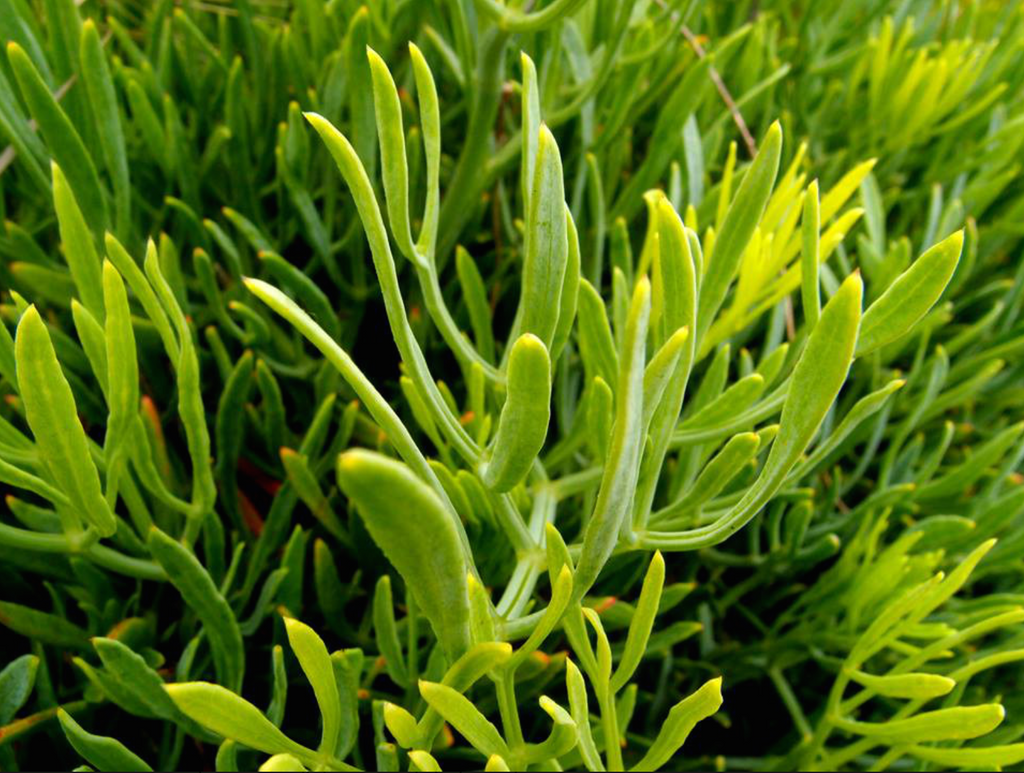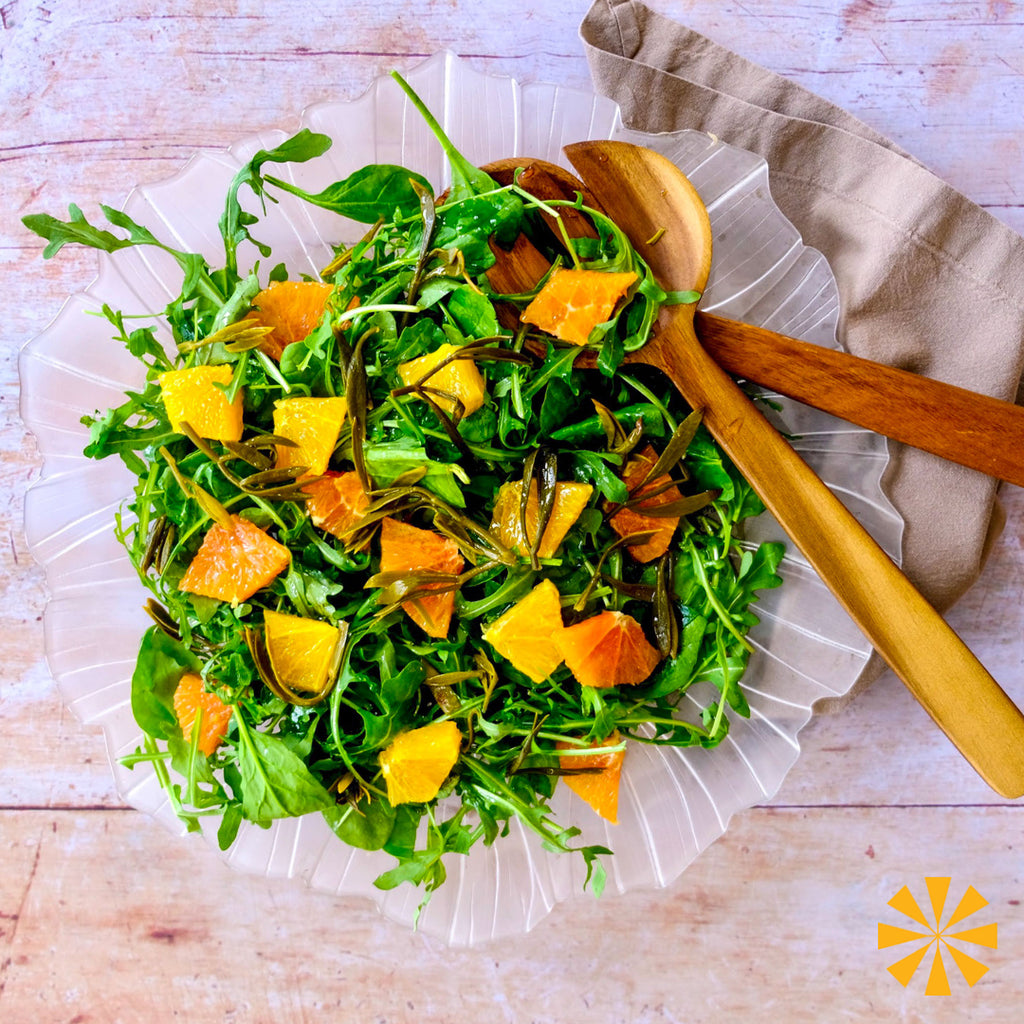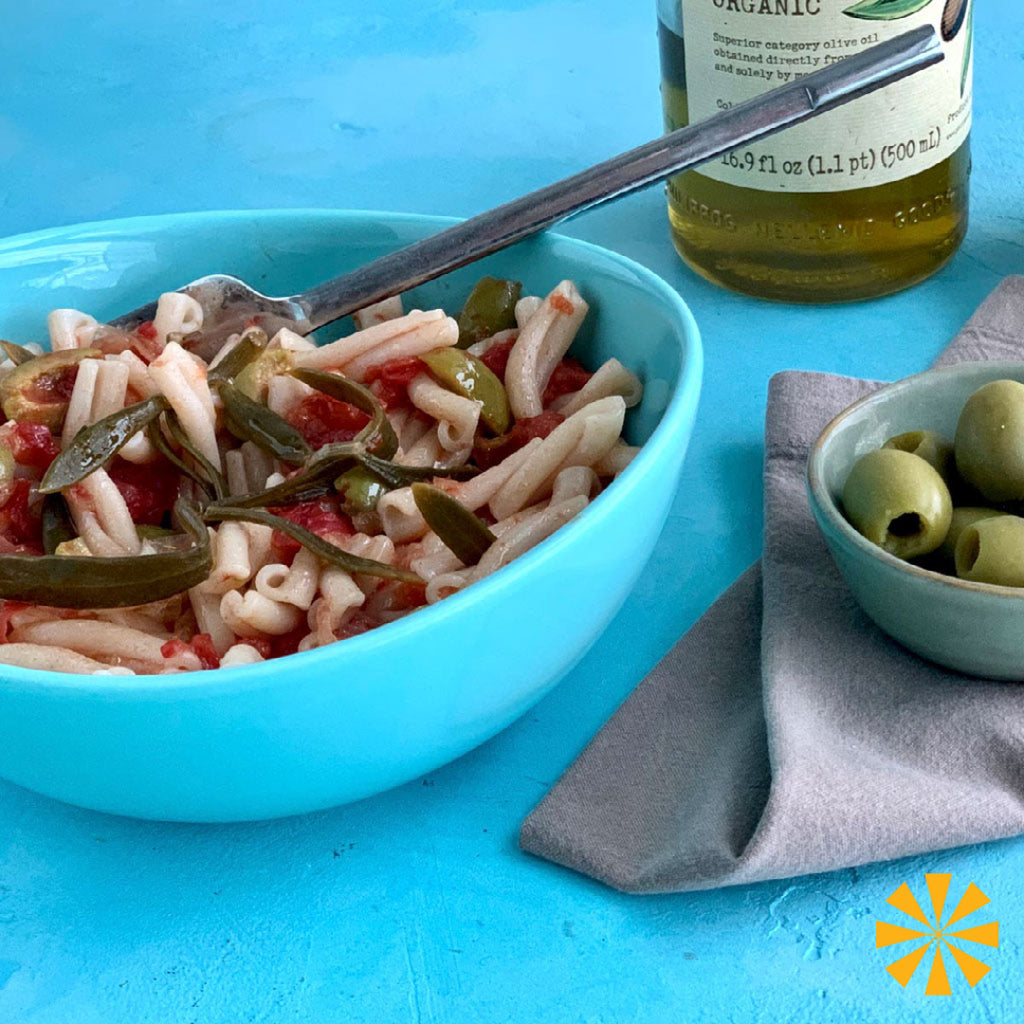Experience Greece: Food, Culture, Hidden Gems & Inspiring People!
Experience Greece: Food, Culture, Hidden Gems & Inspiring People!
ABOUT US
Sea Fennel - The Greek Superfood Discerning Chefs Adore
4 min read

Well before Netflix launched a national conversation on Blue Zones, we've been promoting products like sea fennel, a Blue Zone superfood that discerning chefs are starting to discover. We asked author Jean Fleming, our Zelos team member based in the Peloponnese, to share her take on this unique little plant - read on and get inspired to add a touch of the healthy Mediterranean Diet to your meals!
If you've ever traveled to Greece, you probably have encountered sea fennel on a salad or dinner plate, though you may have thought it was a garnish and put it aside. But that would be a mistake! Sea fennel - called kritamo in Greek, but also known as rock samphire - is a delicious, nutritious superfood that is getting attention from some of the world’s top chefs. If you love pickled condiments, sea fennel is one to add to your table.
What is sea fennel?

With thick stems and fleshy leaves, sea fennel is a plant that grows along the rocky coastlines on the Greek islands and the mainland. Though it looks a bit like seaweed, sea fennel, or crithmum maritimum when it’s being scientific, is actually a member of the carrot family. The leaves, stems and flowers are all edible, but most commonly, sea fennel leaves and stems are brined so that they can be enjoyed long after the season fades.
Traditionally, locals would forage for sea fennel during the growing season, from late spring into the first months of summer. But the rocky habitat that kritamos prefers can make it difficult to get to, a fact that Shakespeare noted in King Lear, where he calls harvesting samphire a “dreadful trade” (yes, you can even find sea fennel along the rocky English coast!). In Greece, cultivation of sea fennel has become a viable - and much easier - way to obtain this superfood, and to protect the fragile coastal ecosystem, too. Look for organic and sustainably-farmed options, like the jars from Tragano Greek Organics.
Sea fennel has been used as both food and medicine from antiquity onwards. No less a medical authority than Hippocrates - he of the Hippocratic oath that doctors take to this day - praised sea fennel for its detoxifying properties. And sailors in the past ate it to prevent scurvy. Turns out, those sailors were onto something, because sea fennel is in a class by itself when it comes to health benefits.
What are the health benefits of sea fennel?
The health benefits of sea fennel are well documented and the verdict is in. Sea fennel is a nutritional powerhouse. It is a rich source of vitamins, minerals, phytonutrients and it even packs plenty of fiber.
- Vitamins: Sea fennel provides vitamins A, C, and E. In fact, it’s so rich in vitamin A that it is sometimes called nature’s retinol, making it a popular ingredient in skincare products.
- Minerals: Sea fennel is a plant-based way to get your copper and magnesium. Magnesium supports nerve health, helps keep blood sugar levels even, and can even enhance sleep.
- Phytonutrients & Omega 3 fats: It’s a potent source of phytonutrients, polyphenols and antioxidants - and Omega 3 fats - all of which are linked to improved cognitive function.
Sea fennel is part of the Mediterranean Diet linked to longevity. In Ikaria, a Greek island “Blue Zone” where life expectancy regularly tops 100, you’ll often find sea fennel on the table. Sea fennel has been widely studied by researchers searching for sustainable ways to stay healthy. For a simpler explanation on the health benefits of sea fennel, this article from Well + Good is an excellent resource.
How do you eat sea fennel?
Now the good part! There are many ways to eat sea fennel as it is a versatile way to add bright, acidic flavor to your favorite recipes. It can be eaten fresh and raw, if you’re fortunate enough to be in Greece during the season. But if not, don’t despair. Preserved sea fennel tastes great and still retains its nutritional superpowers! Zelos offers sea fennel that is organically and sustainably grown, and hand-picked. Once harvested, the sea fennel is parboiled, then cooled to keep the color of leaves and stems, and finally, brined in water, with a little salt and vinegar added.
Add sea fennel to your favorite salads, soups, and seafood dishes. It makes a good substitute for capers, but has more range and doesn’t roll around! Don’t be afraid to experiment. I’ve even taken to adding it to my morning toast. Spread a little tahini, add a slice of ripe tomato and some cucumber then top it with sea fennel - it’s heaven on sliced bread. It’s also great on a bagel and lox. Perhaps I’m a little obsessed, but I’m even experimenting with using it in place of olives in a martini! The bright flavor, satisfying crunch, and hint of the ocean make sea fennel an irresistible ingredient.
Big name chefs are intrigued by sea fennel too. Jamie Oliver included his own recipe for brining it in his magazine. And it’s featured on the tasting menu at Heston Blumenthal’s restaurant Dinner, ranked as one of the world’s best restaurants.
To get started, here are three delicious and easy sea fennel recipes. But be warned: you, too, may become hooked on this tasty, nutritious superfood.
- Gazpacho with sea fennel
- Santorini Fava with shrimp and sea fennel
- Pasta with tomatoes, olives & sea fennel
Learn more about sea fennel:
Well + Good Sea Fennel Benefits & Uses
Sea Fennel phytochemical profile, antioxidative, cholinesterase inhibitory and vasodilatory activity
Author: Jean Fleming, a writer based in the Peloponnese region of Greece
Buy organic sea fennel from Greece
Leave a comment
Comments will be approved before showing up.
Like what you read? Sign-up for more & get 15% OFF!
Sign up for our newsletter and get 15% OFF, plus the best Greek recipes, uncrowded and unspeakably cool destinations in Greece, and the newest offerings from our amazing Artisans.






